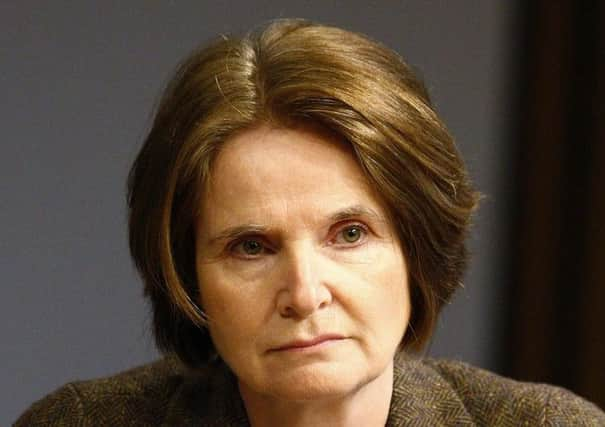Scottish independence: Debt refusal plan ‘flawed’


Jo Armstrong, from the Centre for Public Policy for Regions, also said adopting such a stance in the wake of a Yes vote in the independence referendum could result in an “acrimonious” division of debt
First Minister Alex Salmond has previously threatened to withhold Scotland’s share of the debt if Westminster does not agree to share the pound in a currency union - something the main three parties at Westminster have stated they will not do.
Advertisement
Hide AdAdvertisement
Hide AdBut in a submission to MSPs on Holyrood’s Finance Committee Ms Armstrong argued this approach was “flawed in the sense that sterling, as a means of payment, is not an asset which has a value that can be off-set against Scottish debt obligations”.
She said: “Sterling is more a symbol than an asset, symbolising the UK’s economic and fiscal reputation to pay its debt obligations, with a track record of doing so going back to 1694, with the establishment of the Bank of England.
“Hence it is the reputation of sterling, or to be more precise the reputation of the government and central bank that lie behind it, that is of value.”
Ms Armstrong went on to state that if this argument was pursued by the Scottish Government in the event of a Yes vote “then the division of UK debt is likely to be acrimonious”.
She said if an independent Scotland could manage to negotiate a “low, or zero, share of UK debt” this would “substantially improve Scotland’s fiscal balance and so strengthen its longer term fiscal prospects”
But she said it was not yet known if this could be achieved.
She stated: “The Scottish Government’s best scenario position would appear to be to negotiate a shared currency union with the UK along with a low, or zero, share of debt. Whether it can achieve such a favourable scenario remains an unknown until after the referendum.”
A Scottish Government spokesman said: “The Scottish Government has always made clear, as we do in Scotland’s Future, that we are prepared to accept a fair share of the debt run up by successive UK governments, as part of an agreement on also receiving a fair share of assets.
Advertisement
Hide AdAdvertisement
Hide Ad“Scotland’s share of the UK debt is lower as a percentage of GDP than the UK’s when allocated on either a per capita or a historic basis.
“An independent Scotland ranks as the 14th wealthiest country in the OECD - compared to UK at 18th - and according to the Financial Times is among the 20 wealthiest countries in the world. Standard & Poor’s have also said that - even without North Sea oil and gas - an independent Scotland would qualify for its ‘highest economic assessment’.
“Our proposals for a formal currency union, which fully take account of the integrated cross-border banking sector, and which include rules for joint fiscal prudence, makes sense for the rest of the UK.”
SEE ALSO